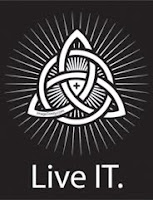During October of 1859 the Virgin Mary is alleged to have appeared to a young Belgian immigrant woman, Adele Brise, on three occasions in Champion, Wisconsin. Since that time faithful pilgrims have continuously visited the chapel which stands of the site of those appearances.
On Wednesday, December 8, which is the Solemnity of the Immaculate Conception, the Most Reverend David Rickin, Bishop of the Diocese of Green Bay, decreed with "moral certainty" that the events, apparitions and locutions given to Adele Brise in October of 1859 do exhibit the substance of supernatural character, and approved these apparitions as worthy of belief (although not obligatory) by the Christian faithful.
This historic decree concerning the Shrine of Our Lady of Good Help is a first for the United States, where no other appearances have been validated. Two alleged apparitions in the US that were examined by the Church and formally declared to be false are Necedah, Wisconsin and Bayside, New York.
An apparition is an appearance of Jesus Christ, the Blessed Virgin Mary or one of the Saints. An appearance may include a message for the person who sees the apparition.
There are 11 approved sites in the world in addition to Our Lady of Good Help. Probably the most well-known apparitions of the Blessed Virgin Mary are Our Lady of Guadalupe, Mexico in 1531; Lourdes, France in 1858; and Fatima, Portugal in 1917.
During each of the three apparitions near Champion (then Robinsonville), Wisconsin, a lady in shining white clothes appeared to Adele. The third time she identified herself as "the Queen of Heaven who prays for the conversion of sinners."
She went on to tell the 28 year-old woman, who lived with her family on a small homestead in northern part of the state, "I wish you to do the same."
The Virgin Mary then gave her a mission for evangelization and catechesis: "Gather the children in this wild country, and teach them what they should know for salvation . Go and fear nothing. I will help you."
Before moving to America with her family about four years earlier, Adele had intended to become a nun and later went on to become a Third Order Franciscan after the apparition.
She fully embraced the mission she had been given and traveled throughout the state, which was still mostly unsettled, giving religious instruction to children and adults. At that time there was a severe lack of priests and attending Mass often involved a laborious journey.
She also established a Catholic school and a community of Franciscan women near the Shrine.
Six years prior to Sister Adele's death in 1896, her adopted hometown of Robinsonville, Wisconsin renamed itself after the Belgian town of Champion. She had requested the change in honor of a childhood promise she had made to the Blessed Virgin Mary that she would enter a Belgian religious order in that region.
Since the 1859 appearances, bishops of the Diocese of Green Bay have been supportive of the apparition account and the Shrine of Our Lady of Good Help, which was erected on the site, as a place of prayer and pilgrimage. However, none had made a official declaration.
While no one can actually prove a supernatural occurrence, there are other factors that can be considered. The Church judges apparitions on the basis of their consistency with Sacred Scripture, Sacred Tradition and the teachings of the Church, any subsequent spiritual benefits in the lives of people, and whether there is anything in the life of the seer that detracts from the credibility of the account.
A decree with moral certainty approves apparitions as worthy of belief by the Christian faithful; however, there is no obligation for belief implied in the approval.
On January 9, 2009 Bishop Rickin opened a formal investigation of the apparition and appointed a team of experts to conduct the study. The formal decree came after just under two years of examination.
While some may think that the Holy See or a conference of bishops makes such decrees, the Bishop is the one responsible for judging the authenticity of apparitions that are said to have occurred in his Diocese.
Bishop Ricken told the Catholic News Agency (CNA) that Sister Adele's own life was among the most convincing testimonies to the validity of the apparition. Rather than calling attention to herself or the apparitions, she had humbly devoted the rest of her life to fulfilling the instructions she had received.
"She went all over this area, and visited the homes that were scattered far and wide," Bishop Ricken said, recounting the sister's Franciscan spirit of humble simplicity. "She walked most of the time, and she'd spend several days with the children teaching them the catechism and talking with the parents about their faith."
"She really had an evangelistic spirit and lived that out, not just immediately after the message, but her whole life long."
Bishop Ricken went on to tell CNA that the simplicity and clarity of Mary's message also testified to the truth of the apparitions. Her instructions to Sister Adele were "simple, but very much loaded with the main message of the Gospel and with the teachings of the Church."
The bishop also recalled discovering "countless stories of answered prayers," including reports of "what many call miracles," among those who had visited the shrine to seeking intercession from Our Lady of Good Help.
The formal declaration from Bishop Rickin can be read here.




